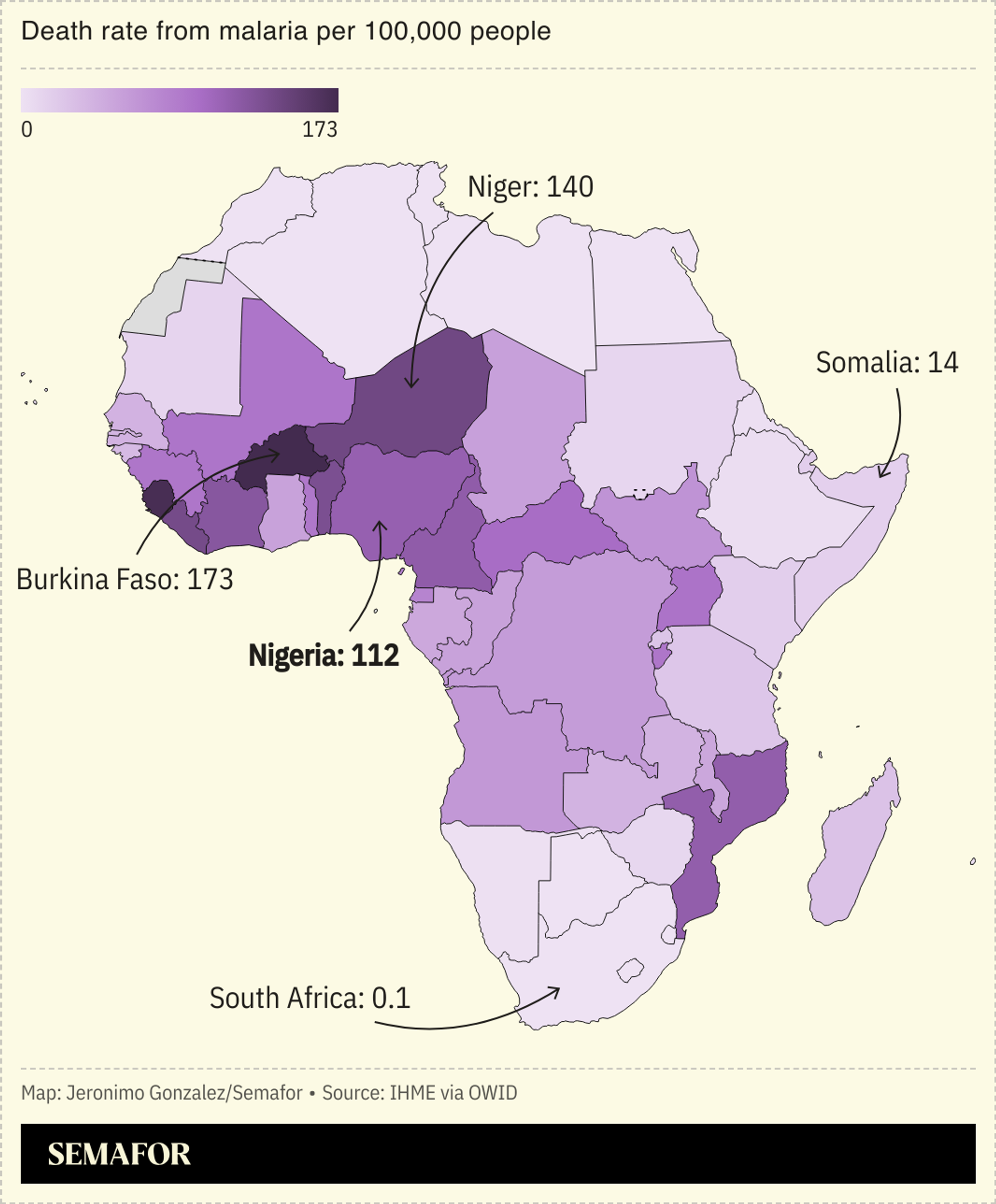The News
Nigeria, the country with the most malaria deaths worldwide, began rolling out a vaccine against the disease for the first time.
The vaccine — which is being administered to children up to five years old, the worst affected population — has an effectiveness rate of 75%, meaning other prevention tools are still necessary.
“We are confident that this vaccine, in combination with other preventative measures, will drastically reduce the burden of malaria in Nigeria,” the World Health Organization’s Nigeria representative earlier said.
Africa accounts for almost the entirety of global malaria deaths, with Nigeria, the continent’s most prosperous nation, representing nearly a third of those in 2022.

SIGNALS
Billions of dollars lost every year to malaria
Besides the human toll, estimates suggest Africa loses billions of dollars a year in productivity and health expenses linked to malaria. In turn, a 90% reduction in case incidence by 2030 — part of the Sustainable Development Goal target on malaria — could boost the GDP of malaria-endemic countries by $142.7 billion, according to research conducted by Oxford Economics Africa on behalf of Malaria No More UK. The corresponding increase in international trade would also significantly benefit the global economy, the report added.
High rates of mobility associated with greater malaria burden
Human movement is one of the biggest challenges to eliminating malaria, two scientists noted in The Conversation. Vulnerable populations are also more likely to travel significant distances, and high rates of mobility are associated with greater onward transmission, they wrote. In the US, a combination of public health measures and infrastructure improvements helped to eliminate malaria in the mid-twentieth century. But malaria hospitalizations have increased in recent years as people travel into the country from malaria-endemic areas, according to the Johns Hopkins Bloomberg School of Public Health.

